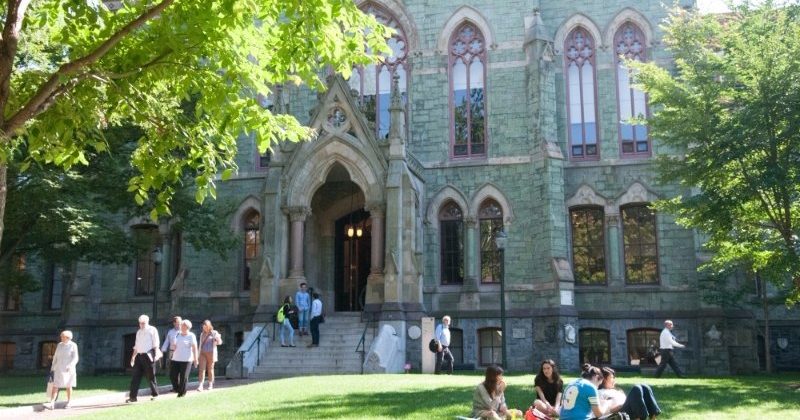

Dr. Ezekiel Emanuel is a physician and vice provost for global initiatives and a professor of medical ethics and health policy at the University of Pennsylvania. Here is a taste of his New York Times piece: “The Moral Deficiences of a Liberal Education“:
We have failed.
When a coalition of 34 student organizations at Harvard can say that they “hold the Israeli regime entirely responsible for all unfolding violence” and students at other elite universities blame Israel alone for the attack Hamas carried out on Israelis on Oct. 7 or even praise the massacre, something is deeply wrong at America’s colleges and universities.
Students spouting ideological catchphrases have revealed their moral obliviousness and the deficiency of their educations. But the deeper problem is not them. It is what they are being taught — or, more specifically, what they are not being taught.
Certainly, not all students wear these moral blinders. But the fact that many students do, and that they are at some of the nation’s leading colleges and universities, should be a cause for profound concern across higher education.
Those of us who are university leaders and faculty are at fault. We may graduate our students, confer degrees that certify their qualifications as the best and brightest. But we have clearly failed to educate them. We have failed to give them the ethical foundation and moral compass to recognize the basics of humanity.
The Hamas massacre is the easiest of moral cases. The attackers intentionally targeted and killed over 1,000 civilians. They killed babies and children, people attending a concert, and people from Thailand, Nepal and more than a dozen countries who could hardly be responsible for the decades of Israeli-Palestinian violence, as if that could be any justification. And then these same gunmen took civilian hostages, with the explicitly articulated intention to use them as deterrence and, if that failed, to execute them.
This case offers an unambiguous base to elucidate clear, shared moral principles. It’s what the ethicist John Rawls calls reflective equilibrium. The clarity of this easy example helps identify principles that allow us to wrestle through harder cases like how much an army is required to do to reduce and avoid collateral civilian deaths.
Ethics are rarely either/or. It is possible to condemn the barbarism of Hamas and condemn the endless Israeli occupation of the West Bank. So, too, is it possible to condemn the treatment of women and the L.G.B.T.Q. community in Arab lands and the attempt by right-wing Israeli politicians to neuter Israel’s Supreme Court. But without the ability to distinguish between right and wrong, and to recognize the fallacies of moral equivalence, students won’t be able to marshal the nuanced reasoning and a careful assessment of responsibility required in times like these.
We in the academy need to look more deeply at how it is possible that so many undergraduates, graduate students, law students and faculty at our nation’s finest colleges and universities could have such moral blinders.
We need to ask ourselves: What is in our curriculums? What do we think it means to be well educated? What moral stands are we taking? The timidity of many university leaders in condemning the Hamas massacre and antisemitism more generally offers the wrong example. Leaders need to lead.
Read the rest here.
I agree with much of what Emanuel says here. The problem, however, goes even deeper. Students develop a moral compass in the liberal arts disciplines. Yet if you look around, you will see schools cutting these programs, dropping majors, and consolidating departments. In my own world, the world of Christian colleges, students are exposed to the deep moral questions necessary for a democracy to function, but only when a college makes a conscience decision to invest in the liberal arts and the humanities. There are fewer and fewer Christian colleges willing to make that commitment these days.
Among other things, I wonder how much of the one-sided, absolutist, dogmatic, recriminationist, exclusionary (choose your adjectives) attitudes and judgments we encounter from these folk (on both the left and the right) are a function of simply being young? Between 14 and 30 or so is the age of idealism, it’s also an age of binary thinking and simplistic analysis / solutions. That’s probably unavoidable. I’m not sure how “right” that explnation is, but it seems to help, especially when I’m confronted with it face-to-face, to think “they’re just going through a phase.”
This is the same kind of thinking that enabled students in the 1960s protest the Vietnam War and American and South Vietnamese actions while not protesting the conduct of the North Vietnamese and Viet Cong.